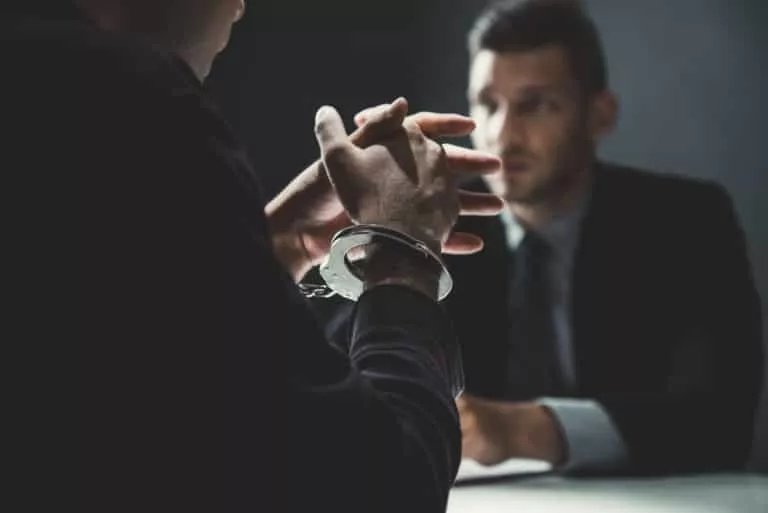A criminal defense lawyer plays a crucial role in the court of law. They are responsible for defending their clients against accusations. Some of the most important things they do include the following:
Explain Your Charges and Rights
One of the primary roles of a criminal defense lawyer is to explain the circumstances to their client. Criminal defense lawyers help their clients understand the nature and severity of the charges filed against them. This process includes an explanation of the charges, the legal definitions of those charges, and how they apply to the client’s case.
Criminal defense lawyers will also discuss the possible outcomes and consequences of a case with their clients. This could include incarceration, fines, probation, and more.
Arguing Bail Amount and Conditions
Another critical role of criminal defense lawyers is to argue for bail on behalf of their clients. Bail is an amount of money that a person accused of a crime can post as collateral to ensure that they return to court for their trial.
In some cases, bail is an alternative to remaining in jail until the trial. Here’s how criminal defense lawyers argue for bail:
- Presenting a Compelling Case for Bail: Criminal defense attorneys gather and present all the relevant information that may help convince the judge that their client should be granted bail. This could include the client’s prior criminal record, employment status, family ties in the community, and their general conduct and reputation.
- Recommending Bail Conditions: Criminal defense lawyers can also recommend specific conditions that could be imposed on their clients as a part of their bail agreement. These conditions may include staying away from specific locations or people, attending mandatory counseling, or committing to regular drug testing.
- Negotiating Bail Amounts: When arguing for bail, criminal defense lawyers will often negotiate with the prosecution and the judge to determine a fair and reasonable bail amount. An essential part of this role is ensuring that the bail amount is not excessive or overly burdensome for the client.
Investigation and Research
A thorough investigation and research process is crucial for a criminal defense lawyer to build a strong case. This begins with gathering information from the client, reviewing police reports, examining the evidence, and identifying any inconsistencies or potential violations of the client’s rights.
Challenging Evidence
Before the trial begins, a criminal defense lawyer can challenge the admissibility of any evidence they believe is improperly obtained or unreliable. This can involve presenting legal arguments questioning the way the evidence was collected, the chain of custody, or whether the evidence is relevant to the case.
Negotiating
Criminal defense lawyers are skilled negotiators, advocating for their clients and working to secure the best possible results in their cases. This can include negotiating with the prosecution on plea deals or discussing possible sentencing options.
Trial
During a criminal trial, the defense lawyer plays a pivotal role in advocating for their client. Some of their key responsibilities include:
Opening and Closing Statements
Opening statements are made when a trial begins, with each side stating what evidence will be presented during the course of proceedings. Closing statements come at the end of trial, and a criminal defense lawyer makes one last effort to argue their point and convince jurors that there is not enough evidence to find their client guilty.
Presenting and Refuting Evidence
Criminal defense lawyers are responsible for presenting evidence that supports their client’s case and refuting any evidence presented by the prosecution. This can include questioning the credibility of witnesses, challenging the accuracy of forensic evidence, and highlighting inconsistencies in the prosecution’s case.
Questioning Witnesses
During the trial, the defense lawyer will question witnesses who can provide testimony that supports their client’s case. They may also cross-examine the prosecution’s witnesses, seeking to cast doubt on their testimony or find inconsistencies in their statements.
Sentencing
If a defendant is convicted of a crime, the criminal defense attorney’s role doesn’t end with the verdict. They also play a crucial role during the sentencing phase of the trial.
A defense lawyer is responsible for presenting mitigating factors to the judge during sentencing. Mitigating factors refer to any circumstances that could justify a less severe sentence. Some common mitigating factors include the defendant’s age, lack of a criminal record, or mental illness.
Appeals: Challenging Convictions and Sentences
Once the trial concludes and a person is convicted, they have a limited period within which they can file an appeal. This time frame varies depending upon the jurisdiction, but is typically 30 days. Filing an appeal is a complex and time-sensitive undertaking, requiring the assistance of an experienced criminal defense lawyer.
An appeal can be based on various grounds, such as legal errors in the trial process, errors in jury instructions, insufficient evidence, newly discovered evidence, or ineffective assistance of counsel. It is the job of the criminal defense lawyer to meticulously review the record of the case, identify any error, and help their client pursue the most viable avenues for appeal.
Contact an Experienced Criminal Defense Lawyer for Help With Your Case
Overall, criminal defense lawyers play an integral role in the criminal justice system. A strong criminal defense lawyer can put you in a position to defend your charges and receive a favorable outcome in your case.
Contact an experienced criminal defense attorney to schedule a free consultation to discuss your charges.
